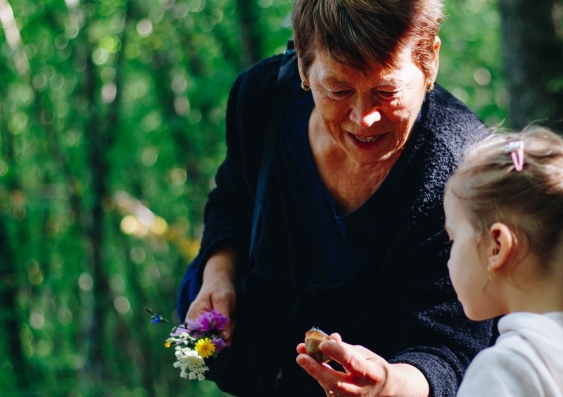Trial connects older Australians and pre-schoolers to improve mental health
The health benefits of intergenerational activity, such as reducing frailty, will be assessed by UNSW researchers.
The health benefits of intergenerational activity, such as reducing frailty, will be assessed by UNSW researchers.

In an Australian first, scientists will begin a pilot trial bringing together older adults and pre-schoolers to assess the mutual health benefits of intergenerational activity, such as reducing frailty and depression.
Inspired by the award-winning ABC series Old People’s Home for 4 Year Olds, the Intergenerational Integration Initiative will see older adults and young children engage in a structured series of investigative, artistic and educational activities together.
Evidence suggests these planned intergenerational activities might reduce frailty and improve mood and thinking skills in the older adults, and also improve empathy and language development and reduce age stereotypes in the younger participants.
Led by Associate Professor Ruth Peters, a Senior Research Scientist at Neuroscience Research Australia (NeuRA) and Conjoint Associate Professor at UNSW Sydney, the trial will run for 10 weeks within the school term at St Nics’ Christian Preschool in Coogee. It will include psychologists and geriatricians from UNSW Sydney, University of Sydney and Griffith University.
“Early research indicates these programs could lead to better physical health and cognition among adults over the age of 65, and better interpersonal skills among children under the age of five,” A/Prof. Peters said.
“Children and older adults can be the perfect companions and build lovely partnerships where they both really care for each other.”
To assess the feasibility of the program within the community, A/Prof. Peters and her team surveyed 258 parents, teachers and older adults themselves to see whether they would support such a program.
“More than 92 per cent of respondents indicated that the program has the potential to increase understanding and friendships across generations, provide unique learning opportunities and improve communication skills in children, while also reducing loneliness and isolation in older adults,” she said.
If this first pilot trial is successful, a larger follow-on trial will test whether the Intergenerational Integration Initiative could be rolled out to wider communities and eventually throughout NSW, and around the country.
“The UNSW Ageing Futures Institute is excited to see this important project develop with such strong community support,” said Professor Kaarin Anstey, Director of the UNSW Ageing Futures Institute and Senior Principal Research Scientist at NeuRA.
“Bringing together older and younger Australians in a day-to-day setting could have a major benefit across Australia, particularly with almost half of those aged 75-84 living alone with likely exacerbated levels of isolation due to the COVID-19 pandemic,” said A/Prof. Peters.
This study has been funded by the UNSW Ageing Futures Institute, with in-kind support from St Nicolas’ Church and Preschool and Anglicare.
Results from the pilot trial are likely to be available in July 2021.